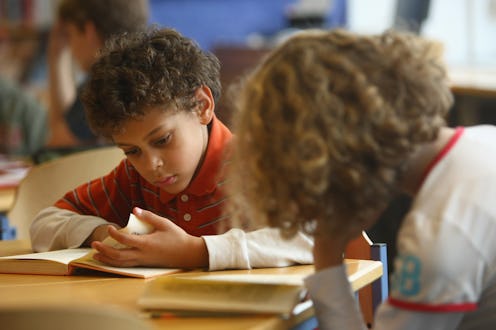Life
Teachers Will Punish "Darnell" More Than "Greg"
It’s no secret that black students receive harsher punishment than white students in US schools. What hasn’t been as understood is exactly how that happens. A new study from Stanford University shows that teachers are more likely to give a black student harsher punishment than a white student based on their name alone. In “Two Strikes: Race and the Disciplining of Young Students,” Psychology Professor Jennifer Eberhardt and Psychology grad student Jason Okonofua studied more than 250 elementary and secondary school teachers to see how they responded to students with stereotypical “black” names (such as Darnell) and stereotypical “white” names (like Greg).
In order to see how the teachers would perceive students with different names who committed the same infraction, the researchers randomly assigned “black” or “white” names to records that listed two minor infractions. After each infraction, researchers asked teachers how they felt about the student’s misbehavior, how severely they believed the student should be punished, and whether they would describe the student as a troublemaker.
What Eberhardt and Okonofua found was that after the first infraction, the teachers didn’t show any difference in their responses to the students. It was after the second infraction that teachers were more likely to be troubled by a black student's behavior, recommend more severe punishment for them, and brand the child as a troublemaker.
"It's not that these are racist people,” Okonufua told Reuters. “It's just that we all are exposed to stereotypes in the world.”
However, stereotypes don’t exist in a vacuum. And the stereotypes that lead to the teachers being more likely to classify black students as troublemakers over white students are racially based. It’s because of racist stereotypes that black students are three times more likely than their white peers to be suspended for similar misbehavior. For black girls, it’s both racial and gender stereotypes that lead to them being suspended at a higher rate than girls of other races and most boys. The stereotyping that plagues black people in society begins inside the classroom for black students.
In an interview with Psychological Science, both Eberhardt and Okonofua suggested that interventions could help improve how teachers perceive and respond to their students. This study is the first step in addressing the stereotypes that plague students, so that soon the classroom can be safer and more understanding place for black students.
Image: Getty Images
